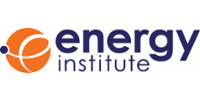THIS EVENT IS A WEBINAR AND FORMS PART OF OUR ROAD TO NET ZERO SERIES.
BACKGROUND INFORMATION.
The need for energy efficiency has been clearly established. While this must continue, the focus needs to shift to resource efficiency - a move away from the Take-Make-Waste model. By-products of energy production need to re-purposed or recycled – the circular economy. The current model rewards energy producers for volume and typically does not charge for the waste.
Governments and corporations should create policies and goals aimed at reevaluating the alignment between what constitutes value and the pricing and costing models that underpin them. There needs to be consideration of all stakeholders in how energy is resourced and priced. Post COVID-19 reconstruction of our economies will increasingly focus on environmental and social values and is likely to accelerate global action along these lines. This impacts every aspect of human society – not just climate change.
WHO SHOULD ATTEND
Professionals working in the Energy, Power, Oil, Mining, Infrastructure, Industrial, Natural Resources, Renewable Energy and Utilities sectors. Banking, Financial institutions and consultancies and legal firms. Financial Regulators and Government Representatives.
WHY YOU SHOULD ATTEND
This webinar will discuss concepts and ideas for improved resource efficiencies and how policies might be put in place to implement them.
WHAT YOU WILL LEARN
Within the context of energy and other extractive resources, "resource" efficiency, and not just "energy" efficiency, form the basis of such thinking. The circular economy needs to be examined not only from the point of view of emissions' reductions and energy efficiency in terms of end-use utilisation, but also from the perspective of creating more efficient and effective utilisation of the actual resources that go into producing energy in the first place.
An internal combustion engine, for example, is less than 25% efficient. This is typical of most carbon molecules burnt. An example of efficiency is a combined cycle gas power plant which would run at approximately 65%+ efficiency in turn running an electric vehicle. This type of power plant reuses the heat created from burning gas.
The panel will discuss:
- How is the Circular economy developing?
- Has the conversation shifted from energy efficiency to resource efficiency?
- Does the circular economy have a role to play in building a more resilient post COVID-19 world?
Our Speakers:
- William Hudson, Head of South East Asia, The Carbon Trust
- Peter Ejisberg, GM Refining Technology, Shell
- Peter Godfrey, Managing Director, Energy Institute
- Seth Tan, Executive Director, Infrastructure Asia
Note:
This event is a webinar and the link to this online event will be issued to attendees the day before the event.

